Current Affairs 26 Sep 2023
Today’s News
Children, a key yet missed demographic in AI regulation
(Current Affairs 26 Sep 2023 |Relevant for GS paper-1)

- India is to host the first ever global summit on Artificial Intelligence (AI) this October. Additionally, as the Chair of the Global Partnership on Artificial Intelligence (GPAI), India will also be hosting the GPAI global summit in December. These events suggest the strategic importance of AI, as it is projected to add $500 billion to India’s economy by 2025, accounting for 10% of the country’s target GDP
- One area where India can assume leadership is how regulators address children and adolescents who are a critical (yet less understood) demographic in this context. The nature of digital services means that many cutting edge AI deployments are not designed specifically for children but are nevertheless accessed by them.
- Regulation will have to align incentives to reduce issues of addiction, mental health, and overall safety. In absence of that, data hungry AI based digital services can readily deploy opaque algorithms and dark patterns to exploit impressionable young people.
- The next generation of digital nagriks must also grapple with the indirect effects of their families’ online activities.

- While moving into adolescence we must equip young people with tools to manage the unintended consequences. For instance, AI powered deep fake capabilities can be misused to target young people wherein bad actors create morphed sexually explicit depictions and distribute them online.
- Beyond this, India is a melting pot of intersectional identities across gender, caste, tribal identity, religion, and linguistic heritage. Internationally, AI is known to transpose real world biases and inequities into the digital world.
- AI regulation must improve upon India’s approach to children under India’s newly minted data protection law. The data protection framework’s current approach to children is misaligned with India’s digital realities.
- International best practices can assist Indian regulation to identify standards and principles that facilitate safer AI deployments. UNICEF’s guidance for policymakers on AI and children identifies nine requirements for child centred AI which draws on the UN Convention on the Rights of the Child (India is a signatory).
- Another key feature of successful regulation will be the ability to adapt to the varying developmental stages of children from different age groups. California’s Age Appropriate Design Code Act serves as an interesting template.
- The Californian code pushes for transparency to ensure that digital services configure default privacy settings; assess whether algorithms, data collection, or targeted advertising systems harm children; and use clear, age appropriate language for user facing information.
- Lastly, better institutions will help shift regulation away from top down safety protocols which place undue burdens on parents. Mechanisms of regular dialogue with children will help incorporate their inputs on the benefits and the threats they face when interacting with AI based digital services.
- An institution similar to Australia’s Online Safety Youth Advisory Council which comprises people between the ages of 1324 years could be an interesting approach. Such institutions will assist regulation to become more responsive to the threats young people face when interacting with AI systems, while preserving the benefits that they derive from digital services.
- The fast evolving nature of AI means that regulation should avoid prescriptions and instead embrace standards, strong institutions, and best practices which imbue openness, trust, and accountability.
What are the findings of the Parliament panel on NEP?
(Current Affairs 26 Sep 2023 | Relevant for GS paper-2)
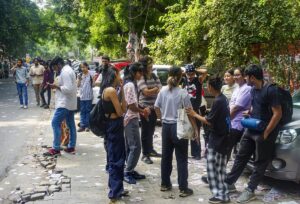
The Parliament Standing Committee on Education, h tabled a report during the special session of Parliament on the “Implementation of the National Education Policy (NEP), 2020 in Higher Education.”
Findings of the report
- The report looked at the salient features of the NEP’s implementation in the higher education sector and the progress made so far. The panel met representatives of various State governments, Union Ministries, higher education institutions and other stakeholders to prepare the report.
- The report noted that of the 1,043 universities functioning in the country, 70% are under the State Act and that 94% of students are in State or private institutions with just 6% of students in Central higher educational institutions, stressing the importance of States in providing higher education.
- The 31 member panel tried to discuss issues such as the rigid separation of disciplines, limited access to higher education in socioeconomically disadvantaged areas, lack of higher education institutes (HEIs) that teach in local languages, the limited number of faculty, lack of institutional autonomy, lesser emphasis on research, ineffective regulatory system and low standards of undergraduate education.
- The panel asked the Union Government and the State Governments to take actions such as earmarking suitable funds for the education of Socially and Economically Disadvantaged Groups (SEDGs), setting clear targets for higher Gross Enrolment Ratio for SEDGs, enhancing gender balance in admissions to HEIs, providing more financial assistance and scholarships to SEDGs in both public and private HEIs, making admission processes and curriculum more inclusive, increasing employability potential of higher education programmes and for developing more degree courses taught in regional languages and bilingually.
- The Committee appreciated the manner in which the NEP was implemented in Jammu and Kashmir.
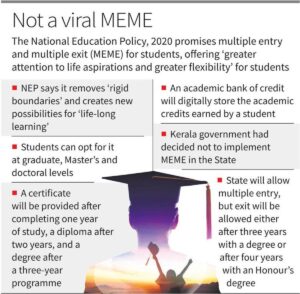
- The panel said it witnessed a paradigm shift in the methods of teaching, leading to lifelong learning opportunities to students.
- The Committee suggested improving the effectiveness and impact of the Higher Education Financing Agency (HEFA) in funding HEIs.
- The panel said that Indian institutions were likely to face several issues in implementing the multiple entries and multiple exit (MEME) system.
- The panel said while the MEME looked like a flexible system, which was being operated by Western educational institutions effectively, it might not work well in the country.
- Since institutions would not know the in and out traffic, it will certainly disturb the pupil teacher ratio, the report noted.
NGOs told to declare assets acquired with foreign funds
(Current Affairs 26 Sep 2023 |Relevant for GS Paper-2)

- The Union Home Ministry amended rules on Monday asking non governmental organisations (NGOs) and associations to declare moveable and immoveable assets created out of foreign contribution.
- According to the Foreign Contribution (Regulation) Rules Amendment Rules, 2023, notified on Monday, two new additions have been made to the existing rules where NGOs are required to declare the details of assets by March 31 of the financial year.
Refresh basics
- FCRA was enacted during the Emergency in 1976 amid apprehensions that foreign powers were interfering in India’s affairs by pumping money into the country through independent organisations.
- The law sought to regulate foreign donations to individuals and associations so that they functioned in a manner consistent with the values of a sovereign democratic republic.
Amendments:
- An amended FCRA was enacted in 2010 to “consolidate the law” on utilisation of foreign funds, and “to prohibit” their use for “any activities detrimental to national interest”.
- The law was amended again in 2020, giving the government tighter control and scrutiny over the receipt and utilisation of foreign funds by NGOs.
Criteria:
- The FCRA requires every person or NGO seeking to receive foreign donations to be registered under the Act.
- To utilize those funds only for the purpose for which they have been received and as stipulated in the Act.
- FCRA registrations are granted to individuals or associations that have definite cultural, economic, educational, religious, and social programmes.
Exceptions:
- Under the FCRA, the applicant should not be fictitious and should not have been prosecuted or convicted for indulging in activities aimed at conversion through inducement or force, either directly or indirectly, from one religious faith to another.
- The applicant should also not have been prosecuted for or convicted of creating communal tension or disharmony.
- Also, should not be engaged or likely to be engaged in the propagation of sedition.
- The Act prohibits the receipt of foreign funds by candidates for elections, journalists or newspaper and media broadcast companies, judges and government servants, members of legislature and political parties or their office-bearers, and organisations of a political nature.
Validity:
- FCRA registration is valid for 5 years, and NGOs are expected to apply for renewal within six months of the date of expiry of registration.
- The government can also cancel the FCRA registration of any NGO if it finds that the NGO is in violation of the Act, if it has not been engaged in any reasonable activity in its chosen field for the benefit of society for two consecutive years, or if it has become defunct.
- Once the registration of an NGO is cancelled, it is not eligible for re-registration for three years.
FCRA 2022 Rules:
- In July 2022, the MHA effected changes to FCRA rules which increased the number of compoundable offences under the Act from 7 to 12.
- The other key changes were exemption from intimation to the government for contributions less than Rs 10 lakh – the earlier limit was Rs 1 lakh — received from relatives abroad, and increase in time limit for intimation of opening of bank accounts.
Maiden India, Indonesia, and Australia Trilateral Maritime Exercise
(Current Affairs 26 Sep 2023 |Relevant for Prelims)

- The Indian Navy’s warship, INS Sahyadri, participated in the first trilateral Maritime Partnership Exercise with the Royal Australian Navy (RAN) and Indonesian Navy from September 20-21, 2023.
- The exercise allowed the three nations to strengthen their partnership and improve their collective capability to support a stable, peaceful, and secure Indo-Pacific region.
- INS Sahyadri, the third ship of the indigenously designed and built Project-17 class multirole stealth frigates was built at Mazagon Dock Ltd, Mumbai.
- The Project 17 class, also known as the Shivalik class. These frigates were the first stealth warships built in India.
- Shivalik is fitted with a mix of indigenous Russian, Indian, and Western weaponry and sensor systems.
Related Blogs…
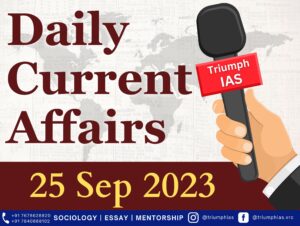 |
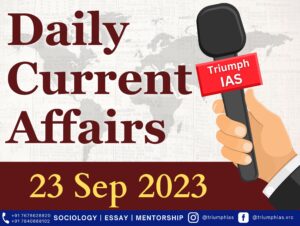 |
GS Related Practices Question…
To master these intricacies and fare well in the Sociology Optional Syllabus, aspiring sociologists might benefit from guidance by the Best Sociology Optional Teacher and participation in the Best Sociology Optional Coaching. These avenues provide comprehensive assistance, ensuring a solid understanding of sociology’s diverse methodologies and techniques.
Current affairs 26 September 2023, Current affairs 25 September 2023,Today news, Today news GS, Today news upsc, Today news and views, Today news 2023, Today news Current affairs September 2023, Current affairs news, Current affairs book pdf, Current affairs best blog, Current affairs for UPSC, Current affairs 2023, Current affairs contact, Current affairs book, Current affairs program meaning

Choose The Best Sociology Optional Teacher for IAS Preparation?
At the beginning of the journey for Civil Services Examination preparation, many students face a pivotal decision – selecting their optional subject. Questions such as “which optional subject is the best?” and “which optional subject is the most scoring?” frequently come to mind. Choosing the right optional subject, like choosing the best sociology optional teacher, is a subjective yet vital step that requires a thoughtful decision based on facts. A misstep in this crucial decision can indeed prove disastrous.
Ever since the exam pattern was revamped in 2013, the UPSC has eliminated the need for a second optional subject. Now, candidates have to choose only one optional subject for the UPSC Mains, which has two papers of 250 marks each. One of the compelling choices for many has been the sociology optional. However, it’s strongly advised to decide on your optional subject for mains well ahead of time to get sufficient time to complete the syllabus. After all, most students score similarly in General Studies Papers; it’s the score in the optional subject & essay that contributes significantly to the final selection.
“A sound strategy does not rely solely on the popular
Opinion of toppers or famous YouTubers cum teachers.”
It requires understanding one’s ability, interest, and the relevance of the subject, not just for the exam but also for life in general. Hence, when selecting the best sociology teacher, one must consider the usefulness of sociology optional coaching in General Studies, Essay, and Personality Test.
The choice of the optional subject should be based on objective criteria, such as the nature, scope, and size of the syllabus, uniformity and stability in the question pattern, relevance of the syllabic content in daily life in society, and the availability of study material and guidance. For example, choosing the best sociology optional coaching can ensure access to top-quality study materials and experienced teachers. Always remember, the approach of the UPSC optional subject differs from your academic studies of subjects. Therefore, before settling for sociology optional, you need to analyze the syllabus, previous years’ pattern, subject requirements (be it ideal, visionary, numerical, conceptual theoretical), and your comfort level with the subject.
This decision marks a critical point in your UPSC – CSE journey, potentially determining your success in a career in IAS/Civil Services. Therefore, it’s crucial to choose wisely, whether it’s the optional subject or the best sociology optional teacher. Always base your decision on accurate facts, and never let your emotional biases guide your choices. After all, the search for the best sociology optional coaching is about finding the perfect fit for your unique academic needs and aspirations.
To master these intricacies and fare well in the Sociology Optional Syllabus, aspiring sociologists might benefit from guidance by the Best Sociology Optional Teacher and participation in the Best Sociology Optional Coaching. These avenues provide comprehensive assistance, ensuring a solid understanding of sociology’s diverse methodologies and techniques. Sociology, Social theory, Best Sociology Optional Teacher, Best Sociology Optional Coaching, Sociology Optional Syllabus.
Best Sociology Optional Teacher, Sociology Syllabus, Sociology Optional, Sociology Optional Coaching, Best Sociology Optional Coaching, Best Sociology Teacher, Sociology Course, Sociology Teacher, Sociology Foundation, Sociology Foundation Course, Sociology Optional UPSC, Sociology for IAS,
Follow us :
🔎 https://www.instagram.com/triumphias
🔎https://www.youtube.com/c/TriumphIAS
https://t.me/VikashRanjanSociology
Find More Blogs
|
Scope of the subject and comparison with other social sciences |
|||
|
|
|
|
Modernity and social changes in Europe |

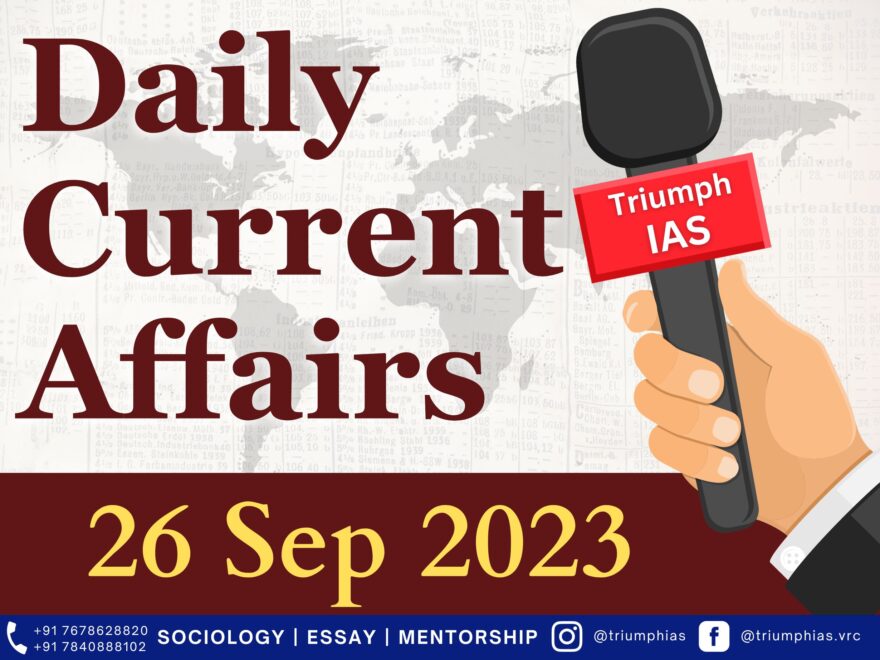

2 comments